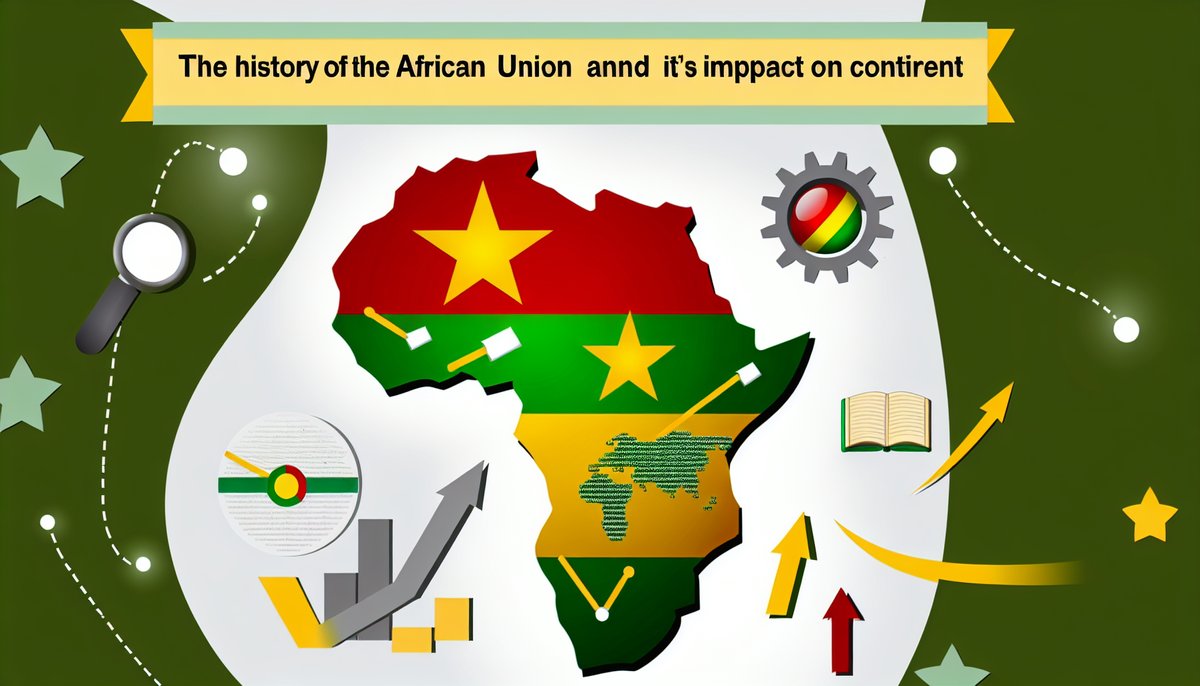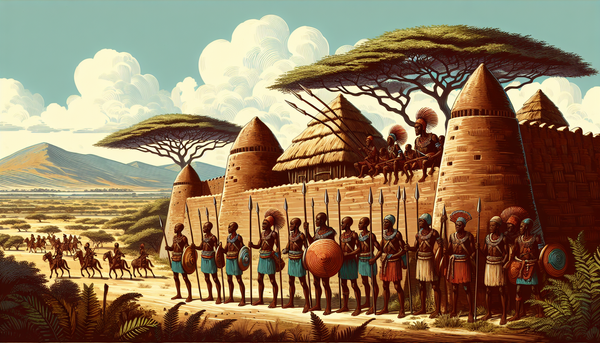The History of the African Union and Its Impact on Continent

Origins and Formation of the African Union
The African Union (AU) traces its origins to the Organization of African Unity (OAU), established on May 25, 1963, in Addis Ababa, Ethiopia. Initially, the OAU aimed to promote unity among African nations and combat colonialism and apartheid. Over the decades, the need for a more robust structure became evident, as challenges such as civil wars, economic instability, and external interference persisted across the continent.
In 2000, a pivotal shift occurred during the Assembly of the African Union in Sirte, Libya, where the African leaders recognized the urgent need for reform. The AU was officially launched on July 26, 2001, and officially began operations on October 26, 2003. This new entity intended to not only focus on political stability but also economic development, social progress, and the promotion of human rights.
The AU’s establishment marked a significant transition from the OAU’s principles of non-interference to a more proactive stance. Its founding charter emphasized collective responsibility and the necessity for African solutions to African problems. This framework aimed to foster greater collaboration among member states in addressing the diverse challenges facing the continent, signaling a new era of African unity and cooperation.
Milestones in African Unity
Over the years, the African Union (AU) has witnessed several key milestones that have significantly shaped continental unity and cooperation. One major achievement was the establishment of the African Peer Review Mechanism (APRM) in 2003, which aimed to promote good governance and accountability among member states. This initiative encouraged governments to uphold democratic principles while fostering transparency and participation.
In 2013, the AU launched the Agenda 2063, a vision for an integrated, prosperous, and peaceful Africa. This strategic framework set ambitious goals for economic growth, social development, and sustainable practices, fostering a sense of collective purpose among African nations. Additionally, the African Continental Free Trade Area (AfCFTA), established in 2018, marked a groundbreaking step towards economic integration by creating a single market for goods and services across the continent.
The AU's involvement in conflict resolution and peacekeeping, exemplified by missions in places like Sudan, Somalia, and the Central African Republic, has also been a notable achievement. These efforts underscored a commitment to regional stability and security. Overall, these milestones demonstrate the AU's evolving role in promoting unity, stability, and development across Africa, reflecting a collective effort towards a brighter future for the continent.
Economic Policies and Integration Effects
Economic policies promoted by the African Union (AU) focus on intra-African trade, investment, and sustainable development, aiming to foster economic integration across the continent. One of the landmark initiatives is the African Continental Free Trade Area (AfCFTA), operational since 2021. This agreement seeks to connect 1.3 billion people, creating a market with a GDP of over $3 trillion. By eliminating tariffs on 90% of goods, it is envisioned to enhance trade among member states, reduce reliance on external partners, and stimulate economic growth.
Additionally, the AU has emphasized regional economic communities (RECs), such as ECOWAS and EAC, which serve as building blocks for continental integration. These RECs not only facilitate trade but also encourage shared infrastructure projects, fostering connectivity and movement across borders. Policies encouraging investment in agricultural and industrial sectors have been essential, aiming to boost food security and create jobs, thereby addressing the continent's high unemployment rates.
The AU's commitment to economic integration also includes promoting technology transfer, enhancing financial inclusion, and supporting local industries. By prioritizing cooperative economic strategies, the AU strives to ensure that African nations collectively address their challenges, enhancing resilience against global economic fluctuations and propelling sustainable development.
Peacekeeping and Conflict Resolution Efforts
The African Union (AU) has emerged as a pivotal player in peacekeeping and conflict resolution across the continent, addressing numerous crises that threaten regional stability. One of its most notable mechanisms is the African Standby Force (ASF), established in 2003, designed to enable rapid deployment of troops in response to conflicts and humanitarian crises. This initiative aims to enhance the AU’s ability to respond effectively to and manage violent conflicts within member states.
The AU has also played a critical role in peace negotiations, facilitating dialogue between conflicting parties in countries like Sudan, South Sudan, and Mali. The AU’s involvement in the African-led International Support Mission to Mali (AFISMA) and the African Union Mission in Somalia (AMISOM) has underscored its commitment to restoring peace and stability in conflict-ridden areas.
Moreover, the Union has established mechanisms for preventive diplomacy, emphasizing the need for early warning systems to identify potential conflicts before they escalate. By fostering partnerships with regional organizations and international bodies, the AU seeks to create comprehensive strategies for conflict resolution. These efforts underline the AU's belief that lasting peace and security are essential for sustainable development and prosperity within Africa.
Health and Education Initiatives
The African Union (AU) recognizes that health and education are foundational pillars for sustainable development across the continent. In recent years, the AU has implemented various initiatives aimed at improving health outcomes and educational access for African populations. One significant health initiative is the African Vaccination Campaign, launched in response to the recurring outbreaks of diseases like Ebola and more recently, COVID-19. The AU promotes regional collaboration to enhance vaccine distribution and strengthen health systems, ensuring that member states can respond effectively to public health emergencies.
Additionally, the AU has endorsed the Agenda 2063 health target, which focuses on achieving universal health coverage, strengthening health infrastructures, and integrating traditional medicine with modern healthcare practices. The creation of the African Centers for Disease Control and Prevention (Africa CDC) in 2017 has further enhanced the continent’s ability to address health challenges collectively.
In education, the AU has prioritized initiatives aimed at increasing access to quality education, particularly for girls and marginalized communities. The Continental Education Strategy for Africa (CESA) 2016-2025 seeks to foster innovation and critical thinking skills through a focused curriculum. By addressing health and education, the AU aims to empower its citizens, ultimately contributing to the continent's long-term social and economic development.
Technological Advancements and Infrastructure Developments
Technological advancements and infrastructure development are central to the African Union's (AU) vision of a prosperous and integrated continent. Recognizing the critical role of technology in driving economic growth, the AU has initiated several programs aimed at fostering innovation and digital transformation across member states. The establishment of the African Union’s Continental Framework for Digital Trade is a significant step towards enhancing e-commerce and facilitating cross-border trade through improved digital infrastructure.
Additionally, the AU has been promoting initiatives such as the African Smart Cities Initiative, which aims to harness technology for sustainable urban development. By integrating smart technologies in urban planning, the initiative seeks to improve living conditions, enhance service delivery, and foster economic opportunities, particularly in rapidly urbanizing areas.
In terms of infrastructure, the AU's Programme for Infrastructure Development in Africa (PIDA) focuses on developing a comprehensive network of transcontinental roads, railways, and energy projects. By building vital transport and energy corridors, the AU aims to boost intra-African trade, enhance connectivity, and ensure equitable access to resources.
Through these technological and infrastructural efforts, the AU is not only addressing current challenges but also laying the foundation for a future where African nations can thrive competitively on the global stage.
Future Prospects and Challenges
The future prospects for the African Union (AU) and its member states are promising, yet accompanied by formidable challenges. With the implementation of the African Continental Free Trade Area (AfCFTA) and the Agenda 2063 framework, Africa is poised for significant economic integration and development. This integration has the potential to boost trade, increase foreign investment, and create jobs, thereby enhancing the overall standard of living for millions across the continent.
However, challenges such as political instability, governance issues, and regional conflicts continue to pose significant threats to progress. The AU must navigate complex political landscapes where national interests often conflict with collective goals. Additionally, the impact of climate change presents dire implications for food security, health, and economic stability, necessitating robust environmental policies and cooperative strategies among member states.
Infrastructure deficits remain another critical hurdle, as inadequate transportation and energy networks can hinder trade and connectivity. Addressing these issues requires substantial investment and commitment from both governments and international partners.
As the AU strives to foster unity and promote sustainable development, it must prioritize collaborative approaches tailored to the unique circumstances of each member state, ensuring that the continent can successfully overcome these challenges and harness its immense potential for future growth.



